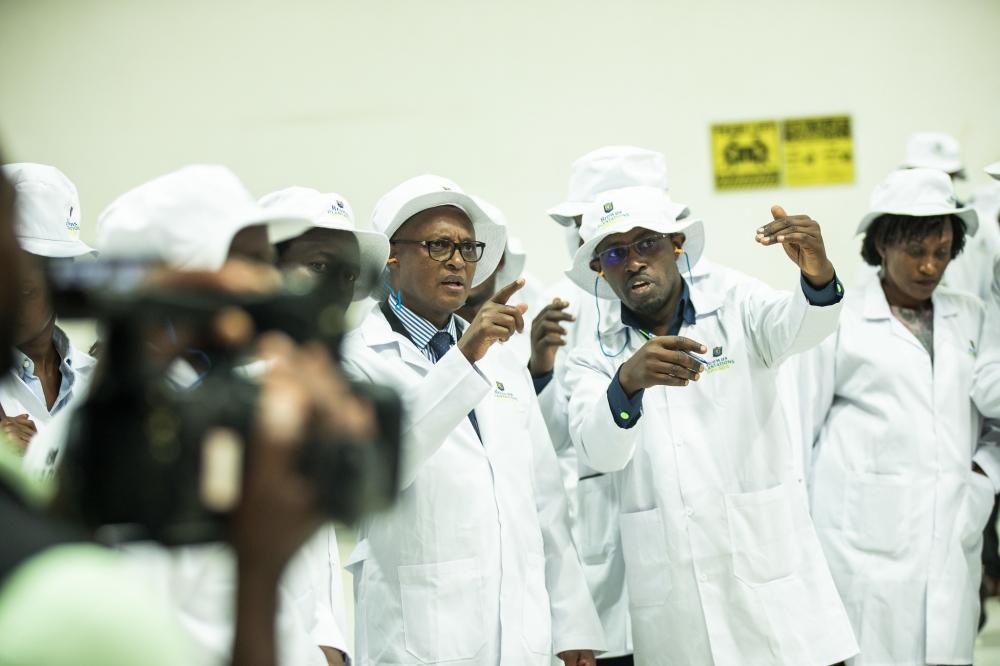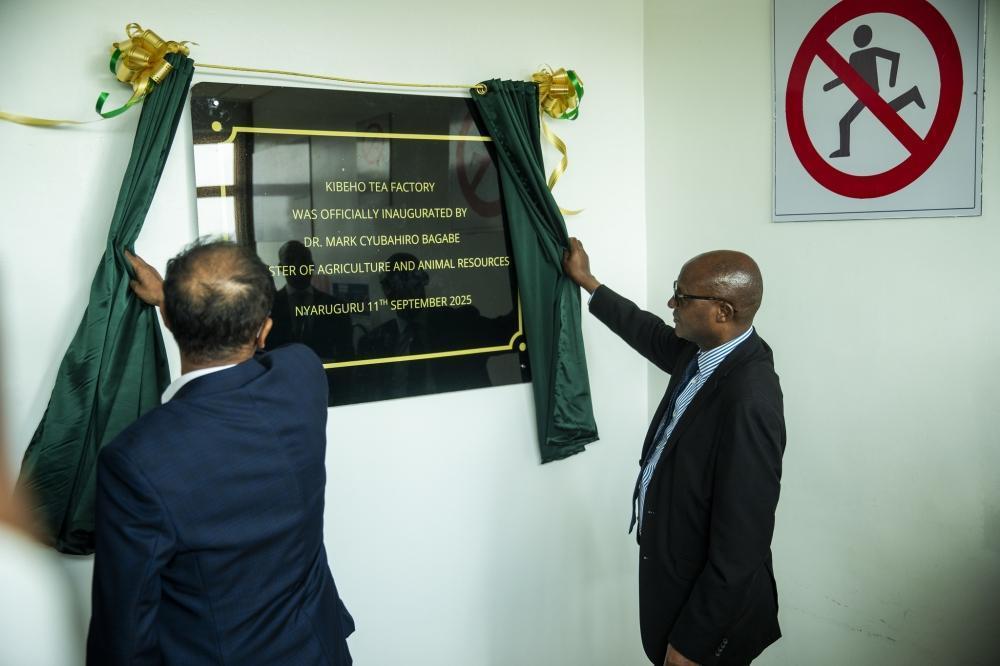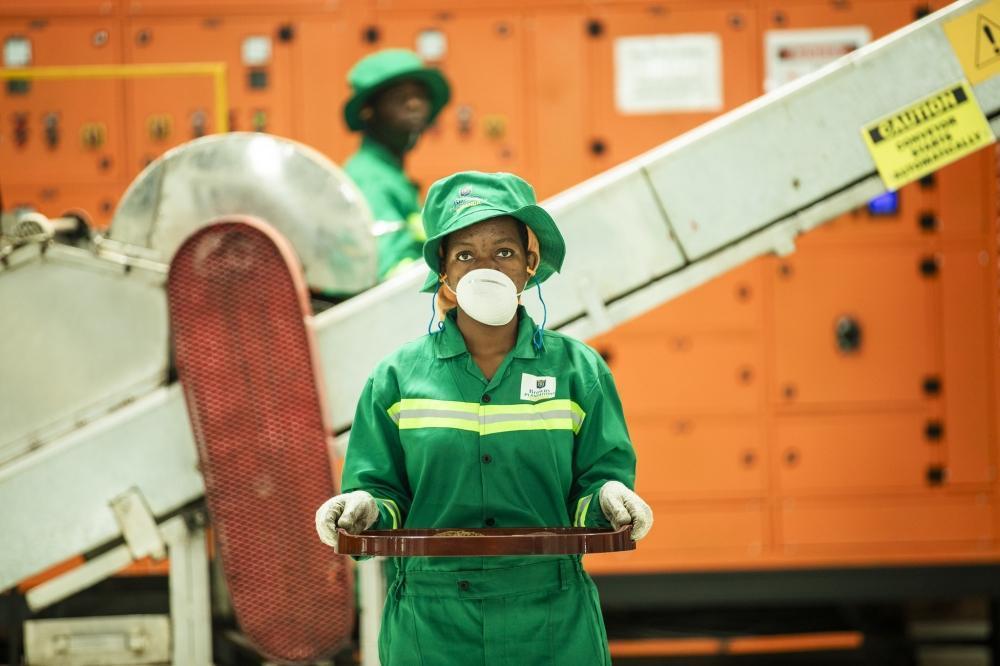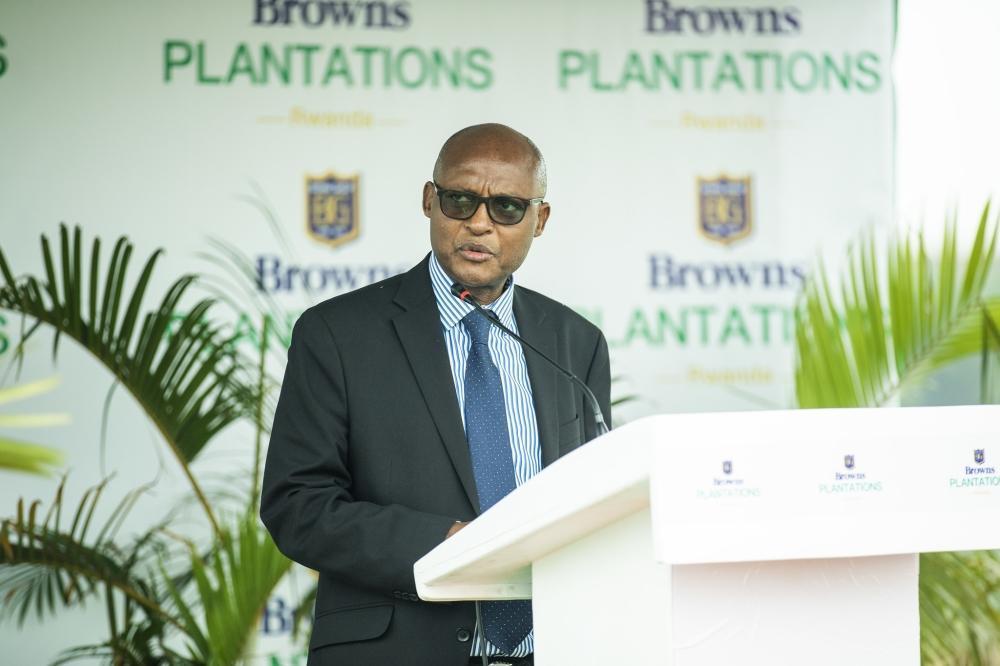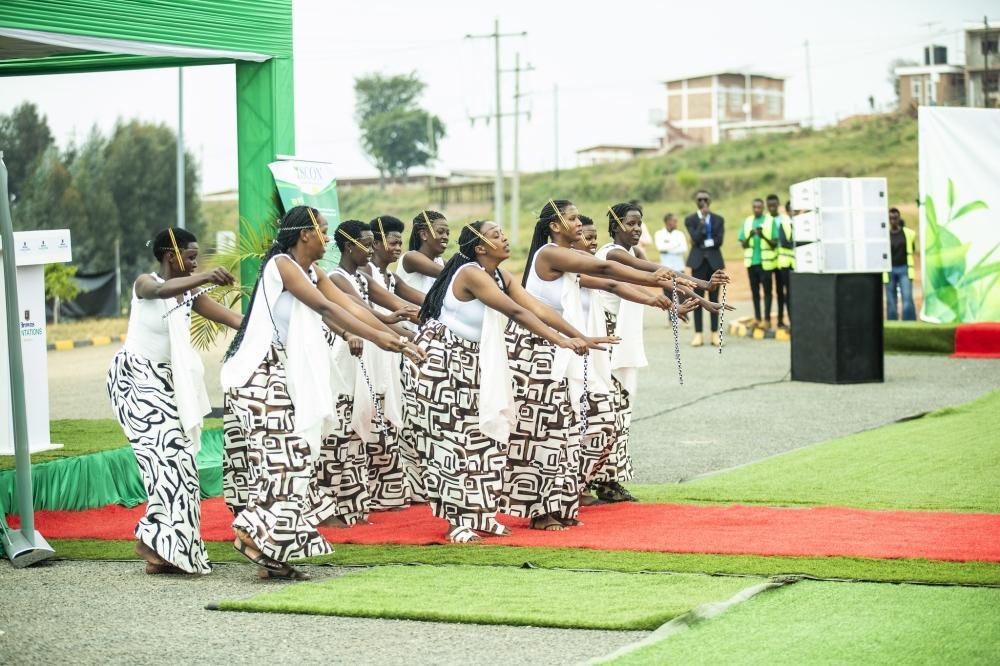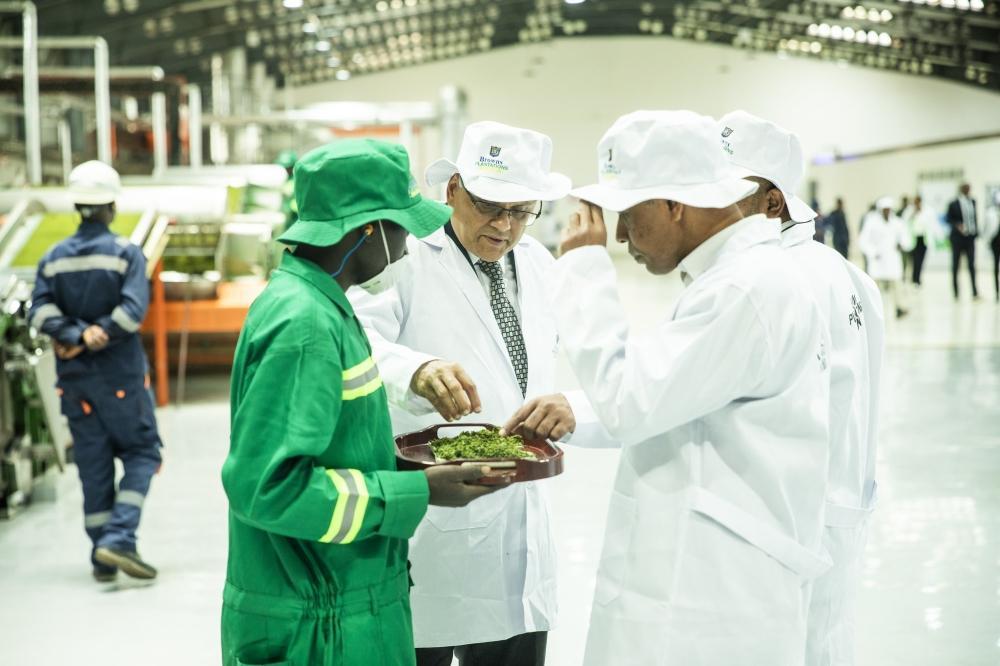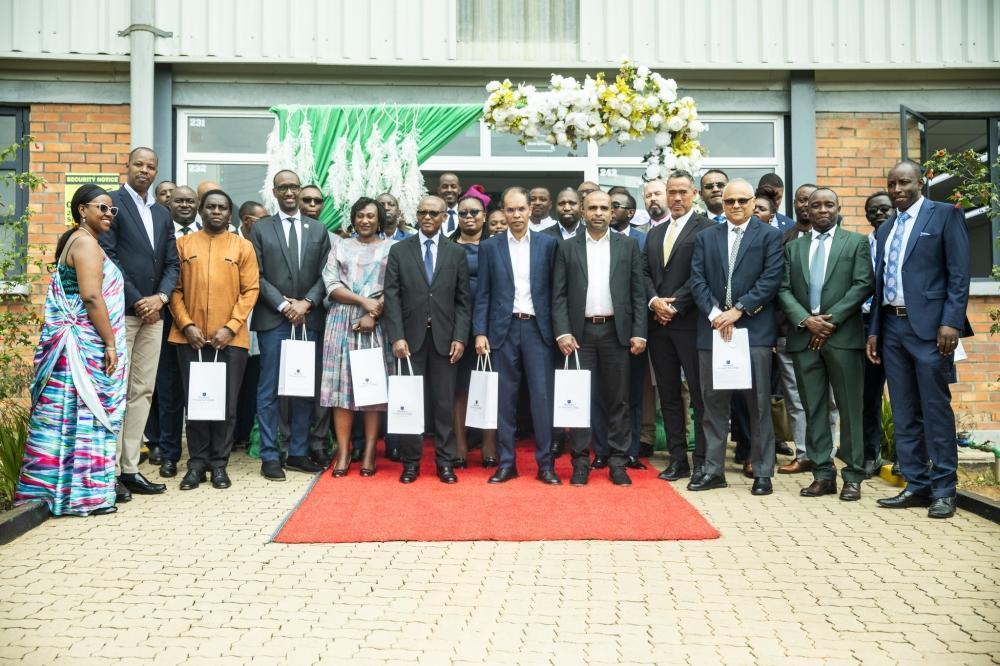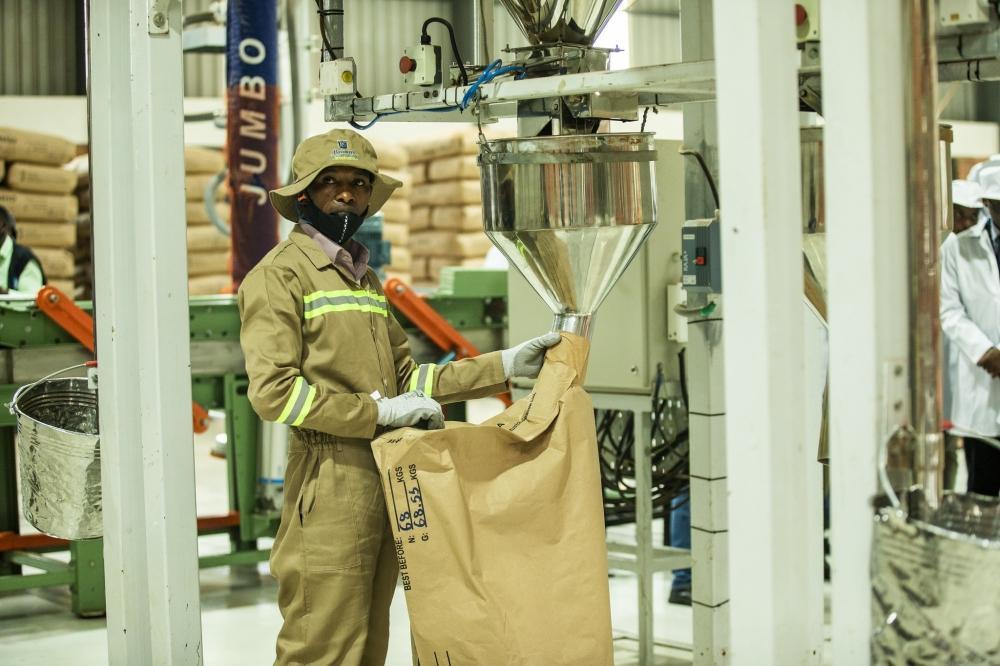Africa-Press – Rwanda. The commissioning of Kibeho Tea Factory marks a major milestone in Rwanda’s largest smallholder tea development project – an initiative poised to transform the livelihoods of thousands of farmers and generate over $45 million annually in foreign exchange earnings, according to its developers. Half of the revenues from the project are expected to go directly to smallholder farmers, they indicated.
Kamantha Amarasekera, CEO of Browns Plantations Investments, said that Kibeho Tea Factory drives to emerge as a premium factory and maintain Rwanda’s image as the top destination for black CTC teas; the factory has a quality plan in place and will leverage on Browns global presence to diversify market outlets to improve value for out tea and ensure sustainable returns.
Unveiled on September 11, 2025, in Nyaruguru District, the factory is part of a public-private partnership that began in May 2016 with joint funding from Browns Plantations Rwanda (BPR), the Government of Rwanda, The Wood Foundation Africa, and the UK Government.
Mariette Muhawenimana, a resident of Kibeho, began as a plucker tea grower and is now promoted to weighment clerk employed at the factory.
“I am able to pay school fees for my children on time,” she said, pointing out that she used initial earnings from her salary tea sales to buy two sewing machines and now she is also an employer of two tailors as she continues to work with Browns Plantations Rwanda. later secured a full-time job checking tea leaf quality at the factory.
She added that the factory offers workers meals, health insurance, and four months of fully paid maternity leave – for working mothers – reflecting its commitment to worker welfare.
Minister of Agriculture and Animal Resources, Mark Cyubahiro Bagabe as he officially commissioned the Kibeho Tea Factory on Thursday, September 11. PHOTOS BY EMMANUEL DUSHIMIMANA
Another farmer, Alexis Mutungirehe from Busanze Sector, shared how the project has changed his income on his piece of land.
“I could harvest Rwf800,000 from eucalyptus tree sales in five years, but with tea, I get Rwf800,000 in eight months on the same piece of land. You can imagine how much I get in five years on the same land.”
Once complete, the project will see the development of 6,417 hectares of smallholder tea plantations, 720 hectares of industrial block, and two tea processing factories with a combined annual capacity of 15 million kilograms of made/processed tea.
Kibeho Tea Factory workers at the firm in Nyaruguru.
The factory is a key part of what is considered Africa’s largest smallholder tea development project, and it’s already transforming rural livelihoods in Nyaruguru District.
Upon full implementation, the project will benefit over 10,000 farmers and grow tea on more than 6,400 hectares.
The first factory in Kibeho will eventually expand its capacity to 7,500 tonnes per year, and a second factory – also with 7,500-tonne capacity – planned for Munini Sector in Nyaruguru.
“So, what we should expect, that is $45 million coming into the economy, a big proportion of which will actually come to our citizens, because our citizens are basically the beneficiaries as shareholders,” said the Minister of Agriculture and Animal Resources, Mark Cyubahiro Bagabe, as he officially commissioned the Kibeho Tea Factory.
The factory currently operates a single black tea production line with a capacity of 2.5 million kilogrammes per year. It is owned and operated by Browns Plantations Rwanda Ltd, and it produces premium black CTC tea for both local and export markets.
Farmers already earning and growing
Currently, 2,521 hectares of tea have been planted by 3,390 smallholder farmers, alongside 720 hectares of industrial plantation developed by Browns. The expected green leaf harvest this year is 9 million kilogrammes.
Felix Mutai, Managing Director of Browns Plantations Rwanda, said the factory is already providing a sustainable revenue stream for farmers.
“This factory is currently at 30 per cent utilisation. We have capacity to go from current 2.5 million kg Made tea to 7.5 million kilos made tea annually. So, the plan is to increase the second and third line in the next three to four years, and that is mainly driven by smallholder farmers increasing their crop. Once this factory is completely utilised, from around 2030 to 2032, we plan to build the next factory in Munini,” he said.
Minister of Agriculture and Animal Resources, Mark Cyubahiro Bagabe delivers his remarks as he officially commissioned the Kibeho Tea Factory on Thursday, September 11. Emmanuel Dushimimana
Traditional ballet performing at the event at Kibeho Tea Factory
Officials and delegates pose for a group photo at the event
Farmers and officials pose for a group photo at the event.
For More News And Analysis About Rwanda Follow Africa-Press

